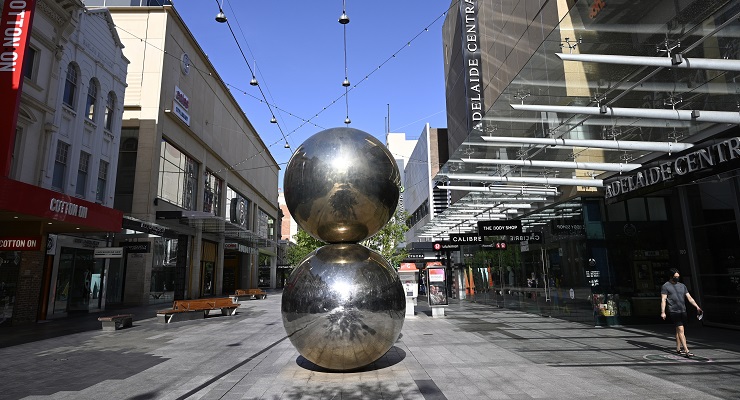
That was then, this is now That something is entirely predictable and transparent doesn’t always stop it from taking the breath away. Case in point: the front page of The Australian today, featuring the headline “Lockdown or months’ more pain”. This concerns the six day lockdown imposed by the South Australian government, under some of the strictest conditions the world has seen in the past year.
For comparison, here are the first couple of Oz front pages from back when when Victoria announced its lockdown. See if you can spot the difference.

We also can’t help but wonder if we’ll see the same response to any setbacks the people of South Australia experience in quelling this latest outbreak.

But our favourite has to be this one, after the lockdown — and News Corp’s incessant sniping — failed to dent Dan Andrews’ approval ratings.

What does SA say? While the Oz might be refraining from giving SA Premier Steven Marshall a Dictator Dan-style nickname (come on guys, “Marshall Tito”, it’s right there…) at least we can rely on former turncoat senator and shit blogger Cory Bernardi for some consistency. He’s been relentlessly tweeting since the announcement, starting with the not-at-all hysterical-or-insulting comparison between a six-day lockdown and the repression faced by people under communist dictatorship:
Police state Though it failed to make the news splash that the government might have liked, it’s still worth noting what yesterday’s raids on the offices of the CFMMEU tells us about the priorities of the Australian Federal Police.
When it’s a union accused of wrongdoing, we get public, co-ordinated raids on offices. When it’s a minister, they apparently aren’t able to pick up a phone.
How Abbott that Former prime minster Tony Abbott has urged his new bosses in the UK not to “sabotage” trade deals by incorporating “relatively theological points” like the trifling matter of climate change. We’re surprised to hear that he’s suddenly so keen to keep theology out of policy, and equally we wonder what he exactly he meant by theological.
Perhaps, as a devout Catholic, he was referring to Pope Francis’ second encyclical Laudato si’, which deeply concerned itself with the environment, and unambiguously accepted the scientific consensus on climate change and “unchecked human activity”.
We can see why Abbott in particular might want to keep that kind of theology out of the conversation.









Crikey is committed to hosting lively discussions. Help us keep the conversation useful, interesting and welcoming. We aim to publish comments quickly in the interest of promoting robust conversation, but we’re a small team and we deploy filters to protect against legal risk. Occasionally your comment may be held up while we review, but we’re working as fast as we can to keep the conversation rolling.
The Crikey comment section is members-only content. Please subscribe to leave a comment.
The Crikey comment section is members-only content. Please login to leave a comment.